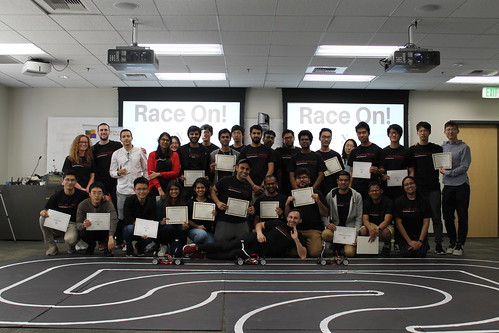Race On: Our Student Run Self-Driving Car Competition!
The goal of this competition is to engage students in hardware-software development of a self-driving car for racing. Teams of 2 to 4 students compete to build the fastest car and have one semester to prepare for the two races, when all cars, turn by turn, race to record the fastest time. The competition is directed to USC Viterbi master students regardless of their program or year, and junior and senior USC Viterbi undergraduate students. Sophomore undergraduate students are also welcome; however, the difficulty of this competition may be more appropriate for more experienced students. Students are not expected to have prior experience with self-driving cars. Teams will receive instructions how to assemble a car from scratch (hardware and electronics) and program the control algorithm of a self-driving car. All cars are built on the same platform and race against each other on the same track configuration, thus innovation and creativity is what counts.
To help the teams get started and provide support along the way, a series of workshops on embedded hardware and software concepts will be organized, along with optional weekly sessions where teams can work on their projects and interact with other teams. Though these workshops are meant to help the teams develop their car, outside work on the project will be necessary, since an exceptional car will require thoughtful optimization to excel. With these workshops as a starting place, teams are given the unique opportunity to apply their technical knowledge and creative abilities to a real-world situation.
Read Our Blog From Last Year’s Winning Team!
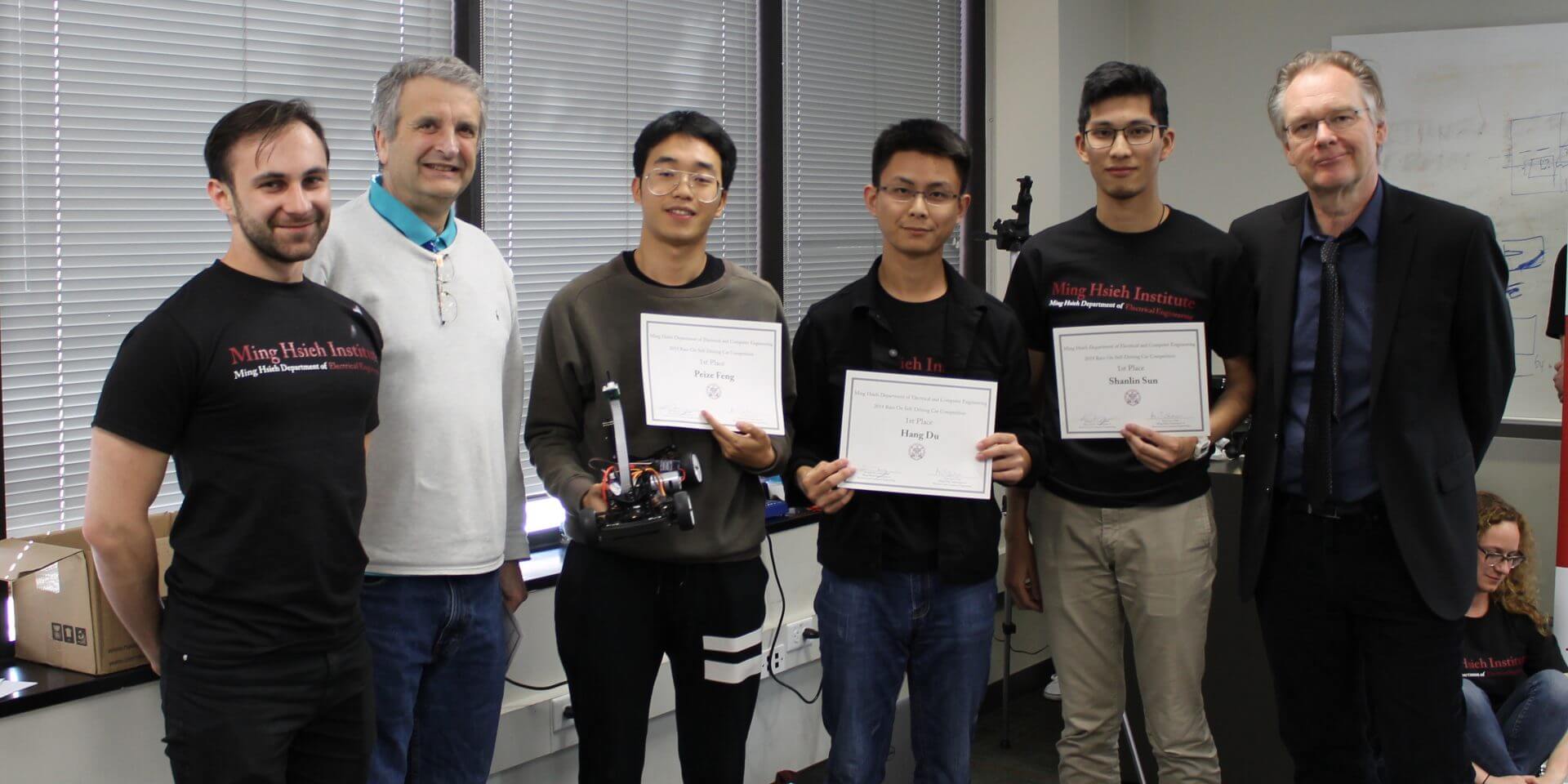
Hardware + Software + Neural Networks = Self-Driving Car
This is the story about how the three of us (Peize, Hang, and Shanlin) won a self-driving car competition with no previous experience. And also about how you can do the same. Read More
Read Testimonials From Some Of Our Other Teams
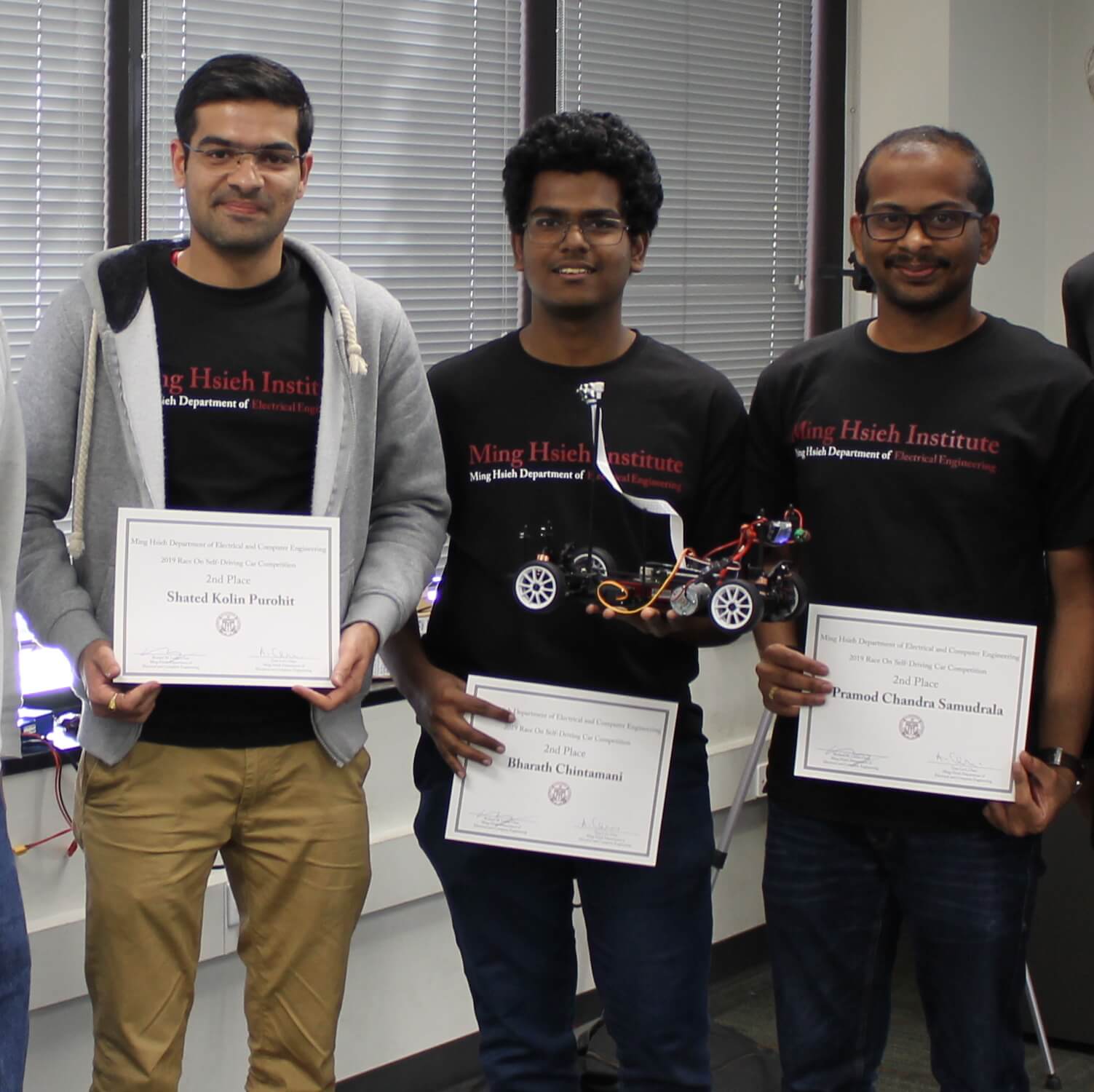
"There is a proverb that goes as follows: “Tell me, and I’ll forget; show me, and I may remember; involve me, and I’ll understand.” This is the fundamental reason for us to participate in the Race On competition [...] The tutorials created by RaceOn Organization team helped us to explore the structure and behavior of a given system and discuss how it is supposed to work. The RaceOn competition experience was enriching and exciting."
- Shatad Kolin Purohit, Pramod Chandra Samudrala, Bharat Chintamani (2nd place)
"Getting the car to run is straightforward, but accurately navigating while maintaining speed is the challenge. Look into PID controllers to manage this problem. If you're not a Masters student, don't worry! Think about how you drive a car. How do you manage turns and stay straight? Or better yet, take an RC car on a spin round a track, and get a feel of converting how you control the car into an algorithm."
- Justin Ly, Edison Siu (3rd place)
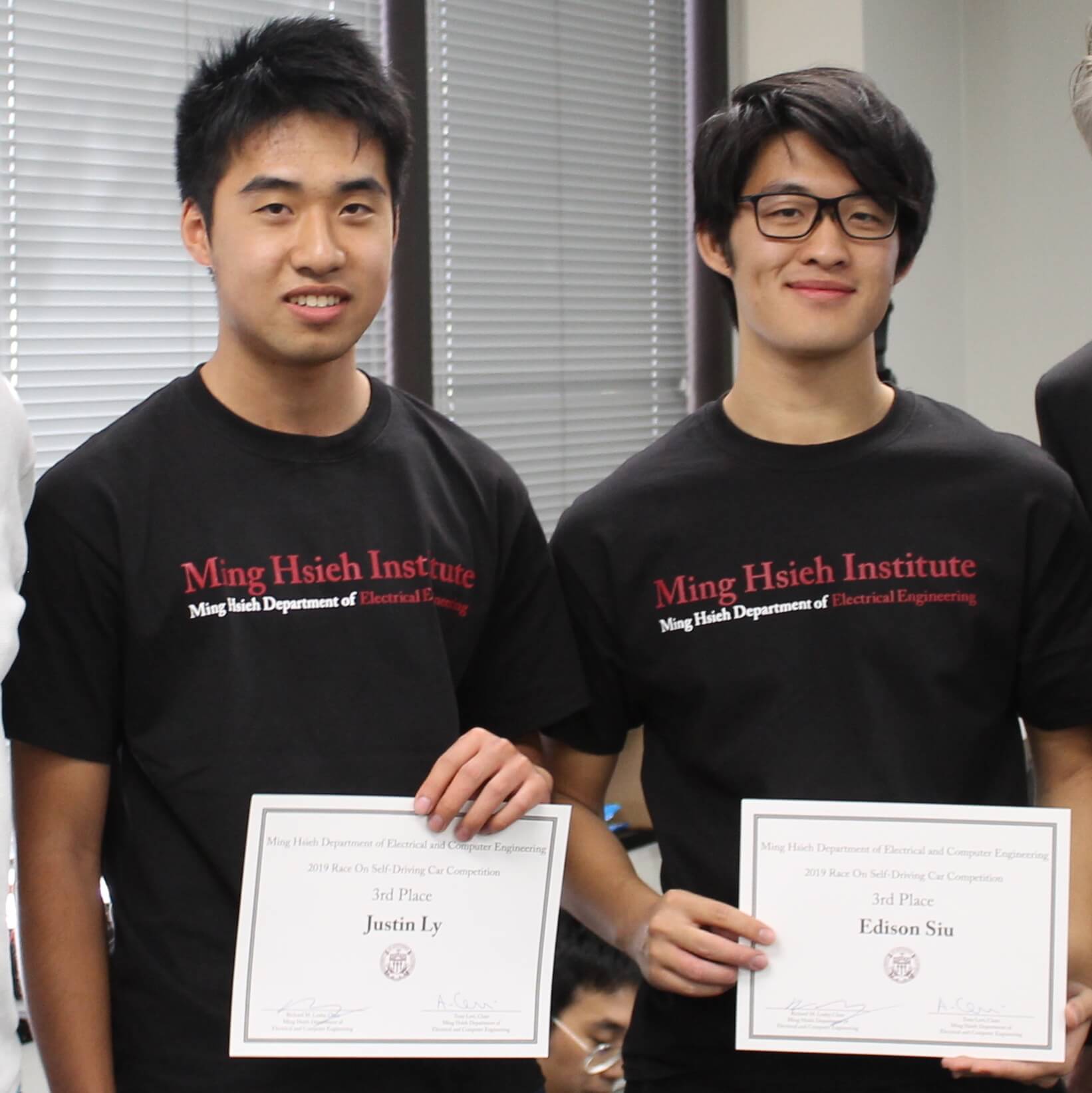
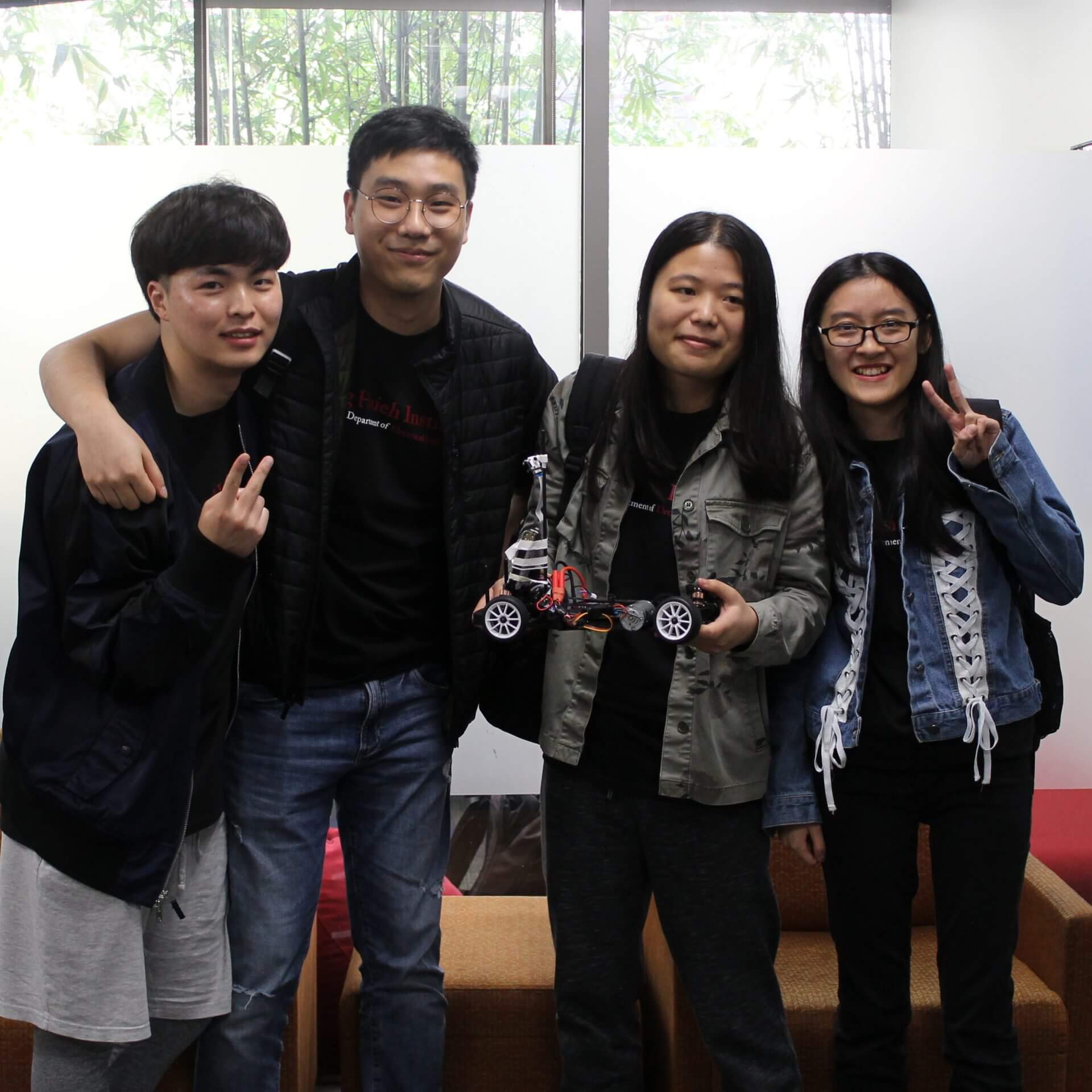
"We learned how to build and run our own 1/10 scale autonomous vehicle from a scratch. We did everything from assembling the vehicle to complicated coding tasks. Anyone interested in these three words: LEARN, BUILD, and CONNECT, should definitely participate!"
-Chanwook Oh, Rujie Yin, Xin Yu, Youngseok Joung
“Race On has been a great experience! The most enlightening part was accomplishing what we did through programming and electrical/mechanical design. We met a ton of smart and enthusiastic friends. Valeriu has been a distinctive resource and an essential support through this. Our best advice would be to breathe, take a step back. This is easier than you think! Always think differently and work differently – even if it seems too difficult at first. That is exactly what will make you learn!”
– Ahmed Fayed, Amy Puente, Alex Winger
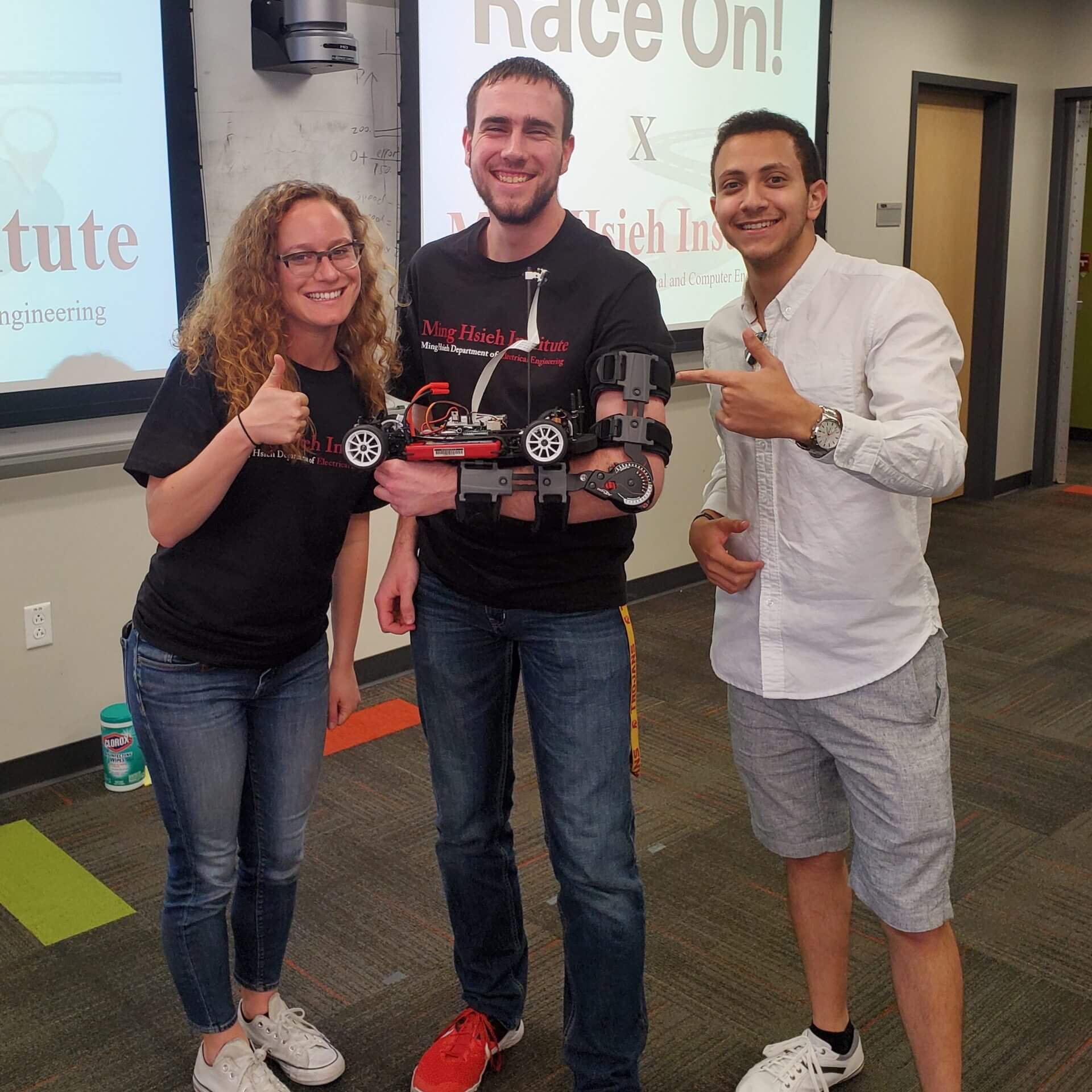
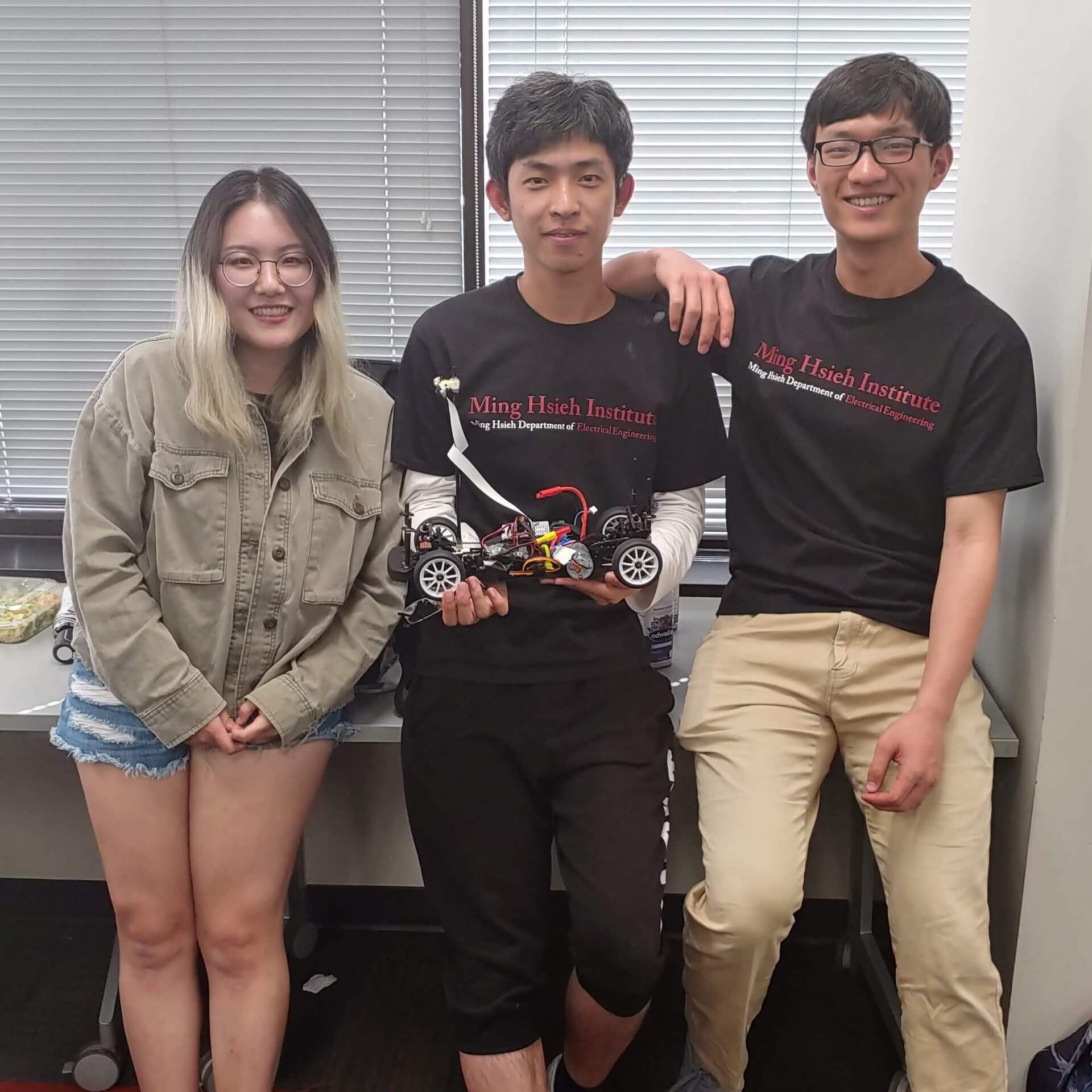
“We came from the same lab in the AME department. We liked this competition because it related to our research in the lab. Challenges always came during the process. One we still remember was that the range of the servo was limited so the current was always too high and parts of the Raspberry Pi were burned! At last, we modified the circuit and then solved the problem. Our advice for new teams? Follow the tutorial shown on the website and always keep pace with the workshop and persist!”
– Chuanhui Hu, Siqi Zheng, Qi Zhang
Published on August 15th, 2019
Last updated on April 7th, 2021


